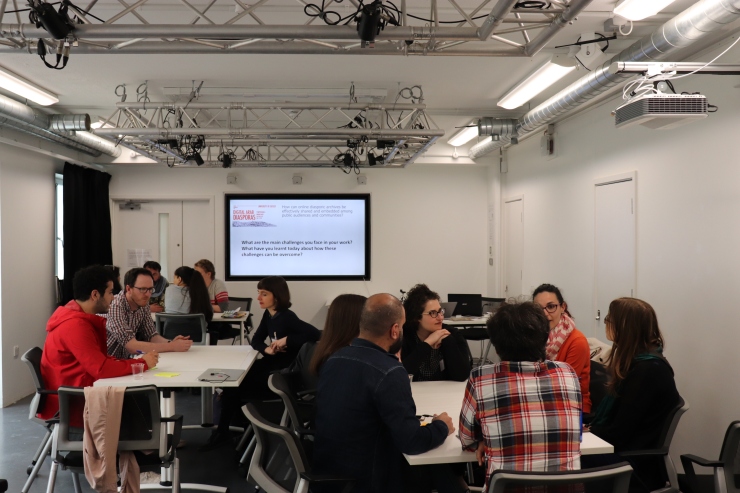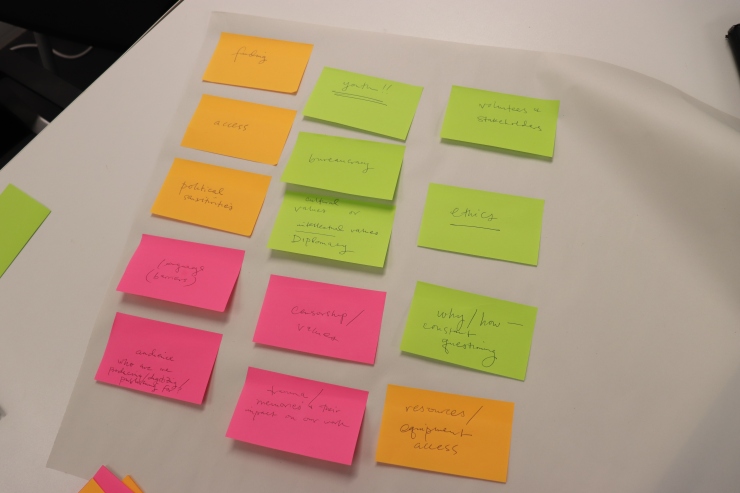On 24 April 2019, an eclectic group of archivists, activists, artists and academics (all conveniently beginning with “a”) descended upon the University of Sussex. Bringing them together was a common commitment to documenting the lives Arabic-speaking diasporic communities through the use of digital technologies.
The symposium was organised as part of the Planet Bethlehem Archive project and generously funded by the UK Arts and Humanities Research Council (AHRC), as well as the Sussex Humanities Lab. The goal was to bring into conversation a diverse range of projects that engage with the theme of “Digital Arab Diasporas”. In a spirit of cooperation and mutual support, the event allowed us to exchange common experiences and challenges, to interrogate how the digital is transforming people’s ability to document and share Arab diasporic heritage, and to take the first steps towards establishing a community of like-minded practitioners.
From Argentina to Australia and from Angola to Albania, there are hundreds of communities scattered around the globe that identify themselves as part of the Arab world. A long and varied history of migration, exile and expulsion underpins their stories. While it is difficult to find any singular trend that unites these diverse histories of movement, their cumulative effect has been to render migration and diaspora an essential part of what it means to be “Arab” in the modern world.
The projects that contributed to the Digital Arab Diasporas symposium all focus on these common themes of movement and exile. They came from France, Palestine, Lebanon, the U.S, the UK, Sweden and Syria. A keynote speech was given by Professor Akram Khater whose pioneering work at the Khayrallah Center for Lebanese Diaspora Studies in North Carolina has not only opened up a new scholarly field of Middle East migration studies, but also engaged public communities all over the U.S and the Middle East with its innovative use of digital resources (see here).
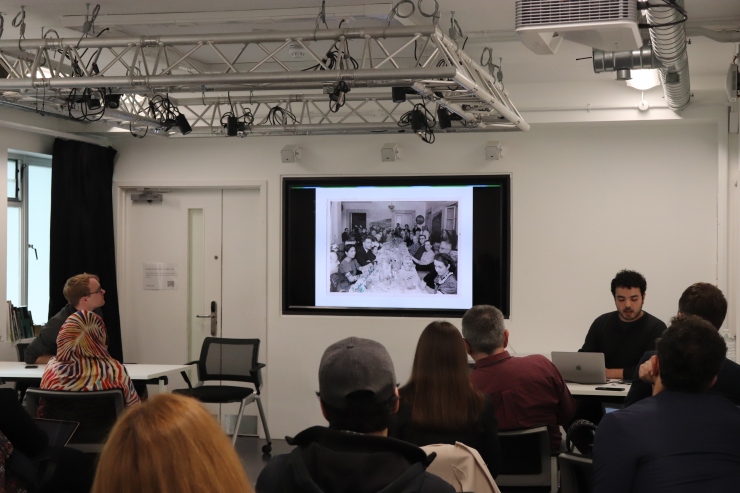
Before Professor Khater’s speech, the day’s proceedings were begun by Charbel Saad who gave an illuminating demonstration of the digital collections at the Arab Image Foundation that relate to the Lebanese diaspora, and in particular the photographic work of Fouad al-Khoury in Argentina and Mexico. This was followed by Valeria Cetorelli of the United Nations Relief and Works Agency for Palestine (UNRWA) who talked us through the complex task of cataloguing the family files of Palestinian refugee communities scattered across the Middle East. After a quick coffee refuelling, we then heard from Nancy Demerdash-Fatemi of Albion College, Michigan, about Muslim “mipsterz” and their creation of visual online communities. Nancy was then joined on her panel by the London-based artist Ania Dabrowska whose work curating the photographic collection of Diab Alkarssifi has led her on a journey of discovery, following the peripatetic movements of Lebanese migrants.
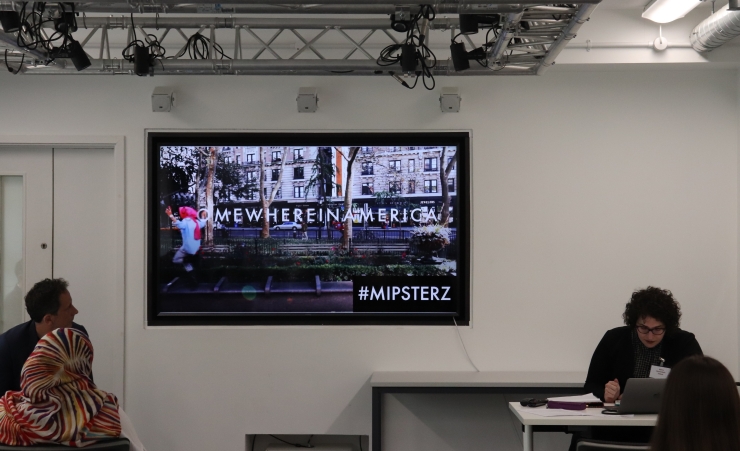
After lunch we heard from Abdelrahim Khalili about the digital archiving work being carried out at the Palestinian Museum in Birzeit. As is so often the case for Palestinians living in the Israeli-occupied West Bank and Gaza Strip, Abdelrahim was denied an exit visa meaning he was only able to join us via video call – a reminder of the uneven ways in which Arabic-speaking communities struggle to link up with each other. This theme was continued with a presentation by Qisetna – an online storytelling project that documents the lives and memories of Syrians dispersed all over the globe. Khaled Alesmael and Juan del Gado provided an overview of this fascinating project and the myriad challenges associated with telling the often painful and traumatic stories that Syrians carry with them around the world.
After a final coffee break, we were joined by Abira Hussein and Sophie Dixon whose project Nomad is exploring how Somali archival objects can be made more accessible and relevant to the people and traditions to whom they belong through the use of immersive mixed reality and web-based technologies. Last but not least, Kevin Cunningham gave us an illuminating run-through of the work Cogapp has done to create the online portal for the Qatar Digital Library.
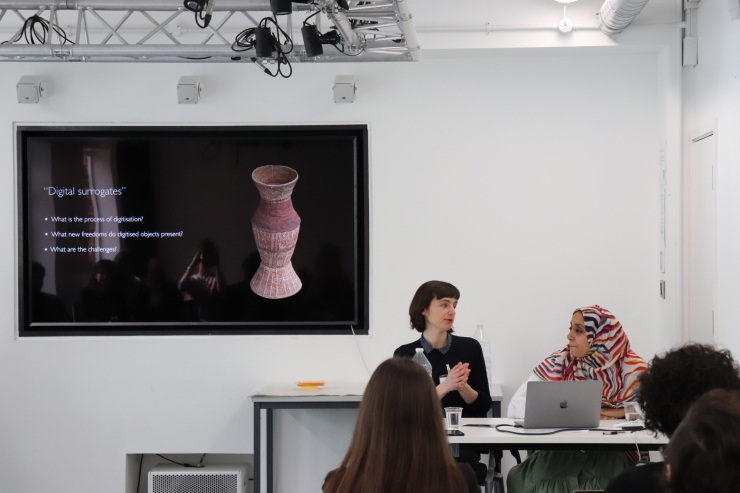
The day was highly stimulating and all the discussions were conducted in a spirit of friendly cooperation. Each panel of speakers was introduced by somebody working at Sussex on related themes. These included Feras Alkabani (al-Qafas), Martin Evans (Paris-London: Global Cities), James Baker (Making African Connections) and two representatives from our Planet Bethlehem project – myself and Freja Howat. Clearly there is much that unites us as a group and we have already been contacted by numerous other projects wishing to be kept informed of any future events. Given the disparate nature of the Arabic-speaking diaspora, there is a need for initiatives like this to bring people together, to share technologies and expertise, and to provide moral support in an environment that is often hostile to people of Middle Eastern origin. The brainstorming session held at the end of the day threw up six common challenges (all interrelated) faced by the various projects that should form the focus of any future events:
1. Volunteers: ethics and sustainability of relying on volunteer workforce
2. Values: intellectual and cultural values, keeping the why and how questions central, importance of aligning values with stakeholders
3. Collaboration: need for more collaborative work: sharing skills, open source
4. Funding: need to share knowledge of funding sources and improve access for independent projects.
5. Vulnerability of participants: trauma, memory, forgetting
6. Public engagement: not just collecting but contextualising and telling stories, identifying the audience, language (esp. Arabic – OCR).
From the perspective of Planet Bethlehem, the symposium was highly useful. We have made vital new contacts that will help us work more collaboratively as we move forward with the project. And we have learned more about just how vibrant and innovative Arabic-speaking diasporic communities are at crafting their own narratives and sharing them online with the people that matter most.
